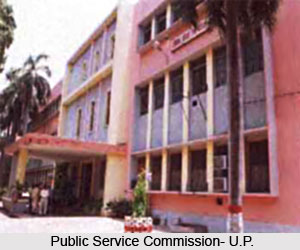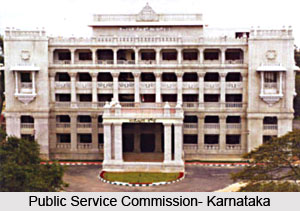 The State Public Service Commissions caters to the recruitment activities of the Indian states. Though the Union Public Service Commission may, on a State government`s request, take up work for that State with the President`s consent but Article 315 nevertheless also provides that there shall be a State Public Service Commission for each State. There may be a Public Service Commission for two or more States. The Constitution provides: Two or more States may agree that there shall be one Public Service Commission for that group of States, and if a resolution to that effect is passed by the House, or where there are two Houses, by each House of Legislature of each of those States, Parliament may by law provide for the appointment of a Joint State Public Service Commission to serve the needs of those States. For example, there is a Joint Public Service Commission for the States of Punjab and Haryana.
The State Public Service Commissions caters to the recruitment activities of the Indian states. Though the Union Public Service Commission may, on a State government`s request, take up work for that State with the President`s consent but Article 315 nevertheless also provides that there shall be a State Public Service Commission for each State. There may be a Public Service Commission for two or more States. The Constitution provides: Two or more States may agree that there shall be one Public Service Commission for that group of States, and if a resolution to that effect is passed by the House, or where there are two Houses, by each House of Legislature of each of those States, Parliament may by law provide for the appointment of a Joint State Public Service Commission to serve the needs of those States. For example, there is a Joint Public Service Commission for the States of Punjab and Haryana.
 The composition of the State Public Service Commission is more or less similar to that of the Union Public Service Commission. The members of the State Public Service Commission are nominated by the Governor. The functions of both the Commissions too, are similar. Only the jurisdiction of the Union Public Service Commission is far wider than that of the State Public Service Commission. The jurisdiction of the Union Public Service Commission extends across the entire length and breadth of the country because it is related to the Civil Service of the Union Government. The Jurisdiction of the State Public Service Commission is limited within the State.
The composition of the State Public Service Commission is more or less similar to that of the Union Public Service Commission. The members of the State Public Service Commission are nominated by the Governor. The functions of both the Commissions too, are similar. Only the jurisdiction of the Union Public Service Commission is far wider than that of the State Public Service Commission. The jurisdiction of the Union Public Service Commission extends across the entire length and breadth of the country because it is related to the Civil Service of the Union Government. The Jurisdiction of the State Public Service Commission is limited within the State.
Composition of State Public Service Commission
There shall be a Public Service Commission for each State unless otherwise provided. The Chairman and other members of the State Public Service Commission shall be appointed by the Governor. Half of the members of such Commission shall be in government service at least for ten years. The members shall hold office for six years or until he attains the age of sixty-two years. The Governor may suspend from office the Chairman or any other member of the Commission in respect of whom a reference has been made to the Supreme Court of India. The Chairman and members of the State Public Service Commission shall be ineligible for further employment in any government service.
Functions of State Public Service Commissions
The State Public Service Commission shall discharge the following functions:
1. To conduct examinations for the appointment to the services of the State government;
2. To advise on all matters relating to methods of recruitment to State`s civil service posts.
3. To advise on the principle to be followed in making appointments, promotions, transfers etc.
4. To advise on all disciplinary matters;
5. To advise on the settlement of claims etc.
The State Legislature, by an act, may provide for the exercise of additional functions for the State Public Service Commission.
The expenses of the Stale Public Service Commission are payable from the Consolidated Fund of India. It shall be duty of the State Public Service Commission to present annually a report to the Governor as to the work done by it.




















